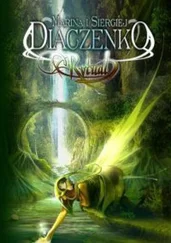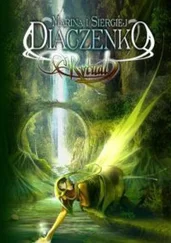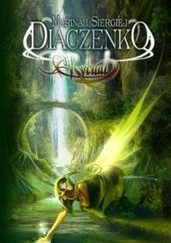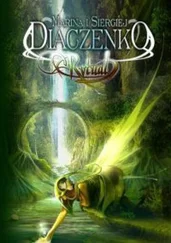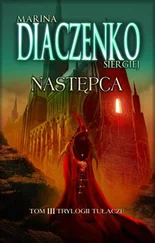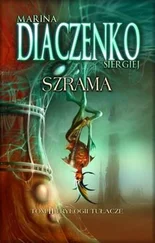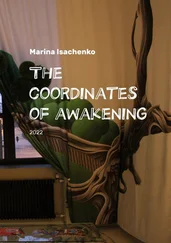The dean turned around. His expression caused Egert to bite his tongue.
“I am a historian,” said the dean desolately. “I am a scholar. But I have never been an archmage and I never will become one. I’ve remained a pupil, an apprentice. I’m not an archmage! Don’t be shocked, Toria. And don’t look so mournful, Egert. I have made do with what I have: intellect and knowledge have made me worthy of the title of mage, but I am no archmage!”
For some time quiet enveloped the study; then, nearer and farther, quieter and louder, one after the other, catching fear from one another, dogs began to howl around the city.
* * *
Who could have guessed that so many rats huddled underneath the city?
The streets teemed with their grayish brown backs; the dogs fled upon hearing the drumming patter of their tiny paws and the rustle of hundreds of leathery tails. The rats rushed about; they squeaked and ground their sharp teeth; they crowded in doorways until heavy stones crashed into the walls next to them, thrown by hands made inaccurate by trembling. Especially brave men armed with heavy canes went out into the streets and beat them, pummeled them, whaling away at their pink, whiskered snouts that bristled with yellow teeth.
On that day the shops did not open and the factories did not produce. A universal terror hung over the city like an oppressive curtain, and the rats ruled the streets. Cowering in their homes with the shutters tightly fastened, the people feared to speak aloud: many that day had the feeling that an intent, glacial, scrutinizing gaze prowled through the streets of the city, peering under the cracks of doors.
The Plague watched the city for two more days, and on the third day it showed itself.
The calm of the vacant streets ceased. Within a few hours the exhalation of the Plague tore open useless shutters and doors, releasing lamentations to Heaven, moans and wailing. The first to fall sick that morning were the first to die that night, and those who had brought them water soon took to their beds, suffering from thirst and lacerated by boils, without any hope of salvation.
The quarantine cordon that was set up at the city gates did not last long. People, seeing hope only in escape, knocked it down, throwing themselves on pikes and swords, sobbing, pleading, hectoring; a portion of the guards drew back in the wake of the fugitives, and before long the Plague descended upon the outskirts, the surrounding towns, the villages, the lonely farmsteads. Astonished wolves found easy meat lying amid the fields and then died in agony because the Plague would not spare even wolves.
Complying with the disordered commands of the mayor, the guards patrolled the streets, remaining loyal to their duty. Bundled up in layers of sackcloth garments, armed with curved pitchforks that resembled malformed bird claws, they moved steadily from house to house, and high wagons sided with wooden slats rattled through the streets behind them, weighed down by the multitude of bodies. The next day they no longer gathered the corpses, and entire homes were transformed into charnel houses, waiting for a merciful hand to throw a lit torch into an open window.
The Tower of Lash shut itself off from the Plague in a thick cloud of fragrant smoke. A horde of people, awaiting salvation, besieged the tabernacle of the Sacred Spirit day and night, but the windows and doors were secured from within and the thinnest cracks, where even the blade of a knife could not enter, were meticulously sealed up and closed. But the strange smoke still rose inexplicably, and people inhaled it in the hope that the sharp, harsh odor of it would defend them against death.
“Idiots,” the dean said bitterly. “Imbeciles. They think to hide themselves and thereby save themselves; they hope the smoke will keep it at bay! They are obstinate, spiteful children, setting fire to their home, sure in their faith that the blaze they play with will not harm them. The end of time for the world, but not for Lash … They are fools. Wicked fools.”
The first wave of the Plague ebbed after three days. Many of those who survived imagined that they were marked by a special good fortune and, possibly, that they abided under the protection of Lash. The deserted streets were subjected to the efficient incursion of looters. Ravaging the wine cellars and household stores of their neighbors, the enterprising family men boasted of their loot to their wives and children, and young lads gave their surviving girlfriends bracelets plucked from dead wrists. They all intended to live for a long time, but the Black Plague began its second feast, starting with them and with their kinsmen.
The dean forbade the students to leave the university, but the power of his prohibition proved insufficient to hold within the thick walls young men, each of whom had family or fiancées somewhere in the city, the outskirts, or some distant town. At the beginning the students rushed to Luayan for help and salvation, but he locked himself in his study and did not wish to see anyone. The hopes of the youths gave way to bewilderment, then to resentment, then to despair: they left the university one after another, complaining bitterly about mages who shirked mere mortals at the very time when their help was most needed. Egert gritted his teeth when he overheard curses addressed toward the dean who had left the students to the mercy of fate. It was difficult for him to wrap his mind around the thought that Luayan was not all-powerful, but it was even more difficult to perceive that the dean’s behavior looked like betrayal.
It was no easier for Toria. For the first time in her life her father was not by her side as they faced hard times, but by himself, in solitude, and her awareness of this was for her far more onerous than all the troubles of the epidemic. Egert kept close to her at all times; fear, obtrusive as a toothache, his chronic fear for his own hide paled now before the thought of what fate might bring to Toria, recently discovered by him as if by a miracle, and what it might bring to her father, the university, the city—and to the city of Kavarren.
Kavarren was far away. Kavarren, hopefully, would remain unharmed. Kavarren would have time to set up cordons, to institute a strict quarantine. Kavarren would defend itself. But in a dream that recurred every night, Egert saw the same thing: howling dogs in front of the Noble Sword, smoke ranging along the deserted streets, mountains of corpses on the embankment, the barred gates with their emblem grown dim from soot …
The dean had said that the Black Plague would lay waste to the world if it were not stopped. There were many hundreds of Kavarrens on the earth. What was some small, albeit ancient and proud, provincial town to the Plague?
The remaining students at the university kept close together, like sheep in a harassed herd. Neither hide nor hair was seen of the headmaster, the servants ran away, the teachers failed to appear, and the youths, who had until recently considered themselves to be solid, respectable, learned men, turned out to be feckless boys. One day the walls of the Grand Auditorium resounded with the most sincere weeping. One of the Inquirers was sobbing on his rough bench like a small boy; he was just a village lad, for whom the first year of his studies had turned into a nightmare. The others averted their eyes, not wanting to look at the pale faces and quivering lips of their comrades, and then Fox suddenly grew savage, boiling up into a white-hot fury.
No one had ever heard such scathing speech from him before. He proffered a thimble to each and every one of them so that they could gather up their snot; he suggested that the wide skirts of their mothers might be very warm to hide under and called for a chamber pot to be brought into the hall in the event of sudden need. He strode up to the rostrum and rained insults down on his classmates: they were slack-mouthed, snot-nosed, scruffy little shits, receptacles for spit and piss, and limp-dicked mama’s boys. The weeping lad sobbed one last time then opened his mouth wide and blushed a deep red color, as if his cheeks had been brushed by a lady’s cosmetics.
Читать дальше

